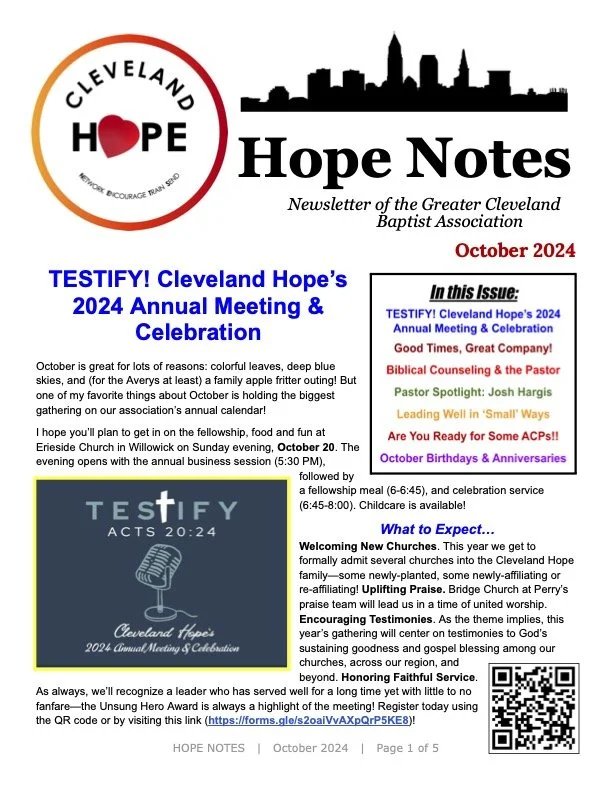Spring returns to northeast Ohio, and we’re glad you’ve returned to our Hope Notes page to keep up with what’s happening around Cleveland Hope! Click the image below to view the full April edition of Hope Notes.
**NOTE** The RSVP link in the April Pastor & Planter Gathering article on p. 2 is inactive, so here it is:






